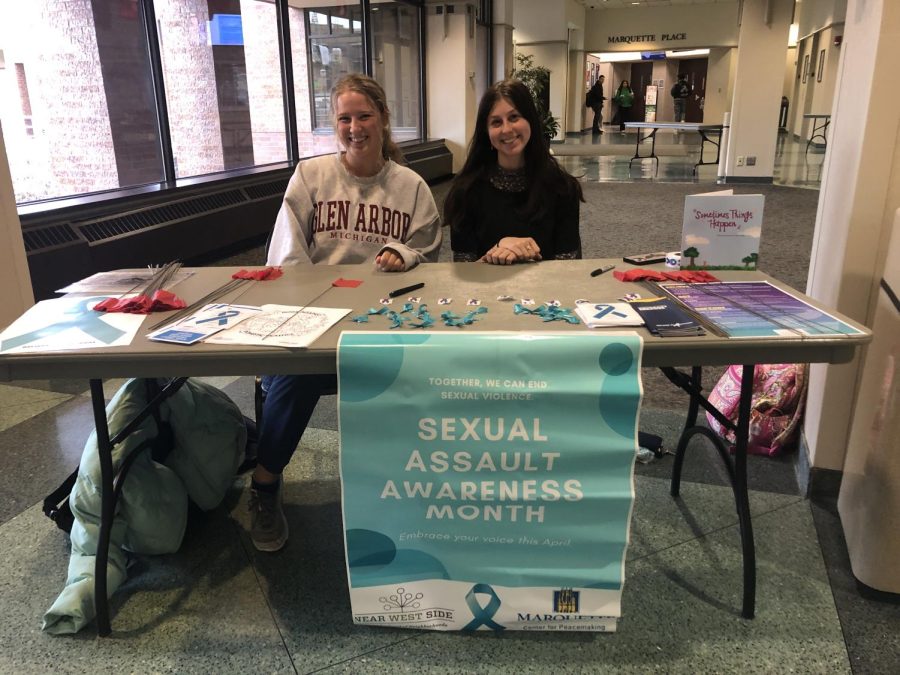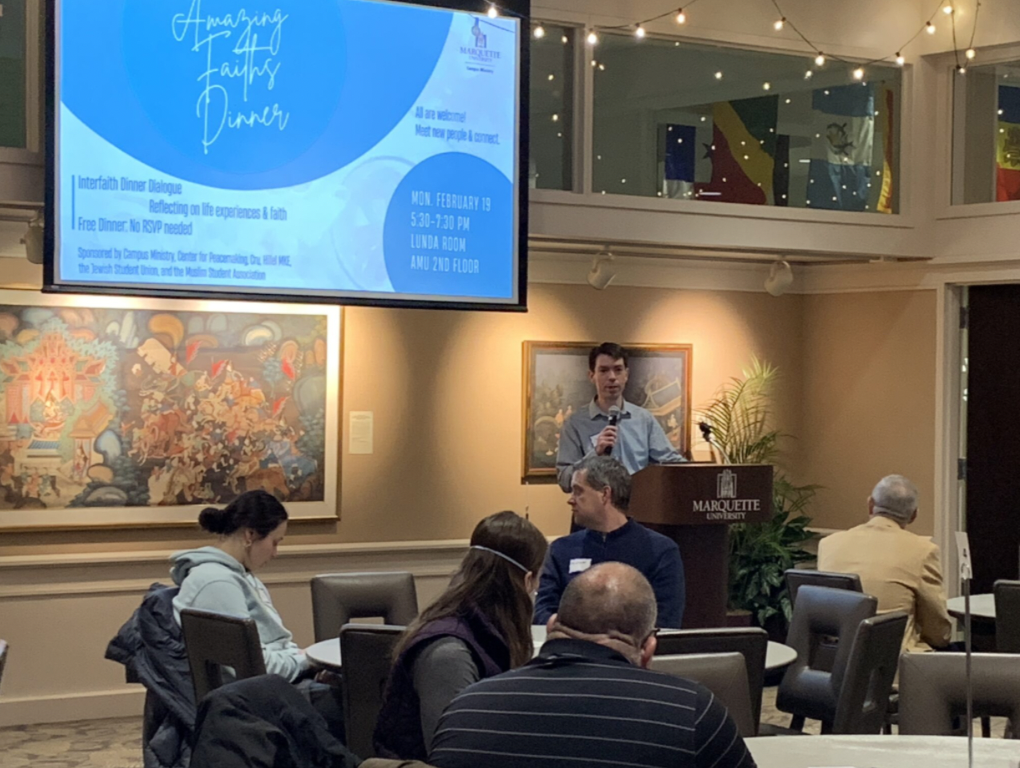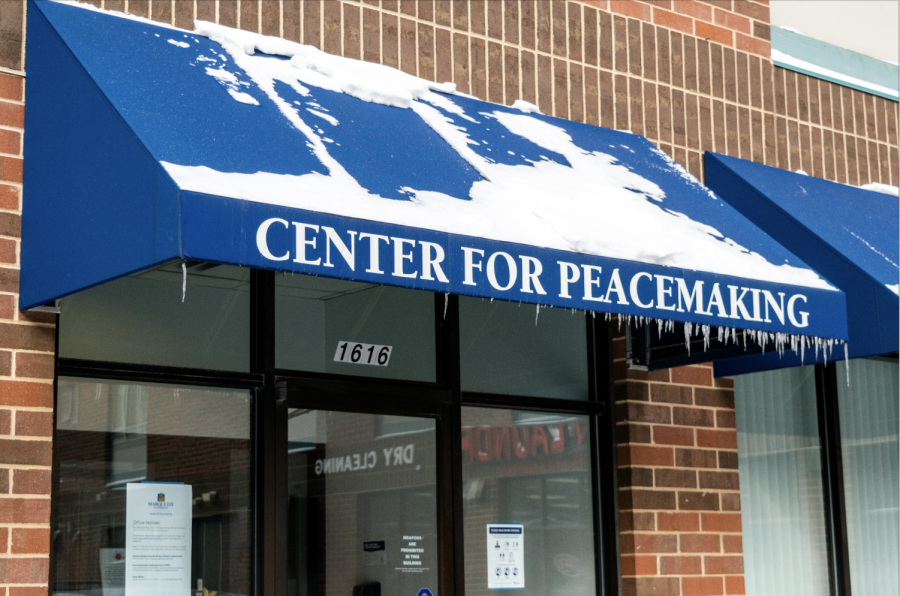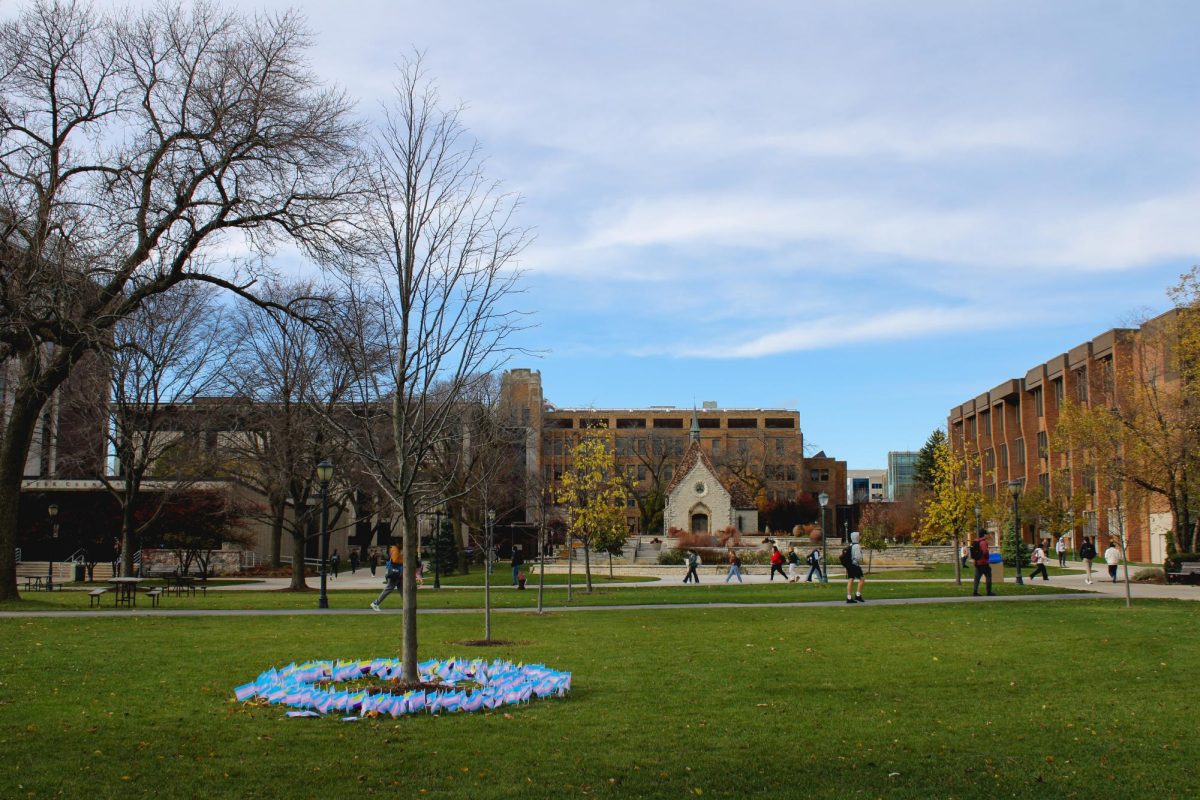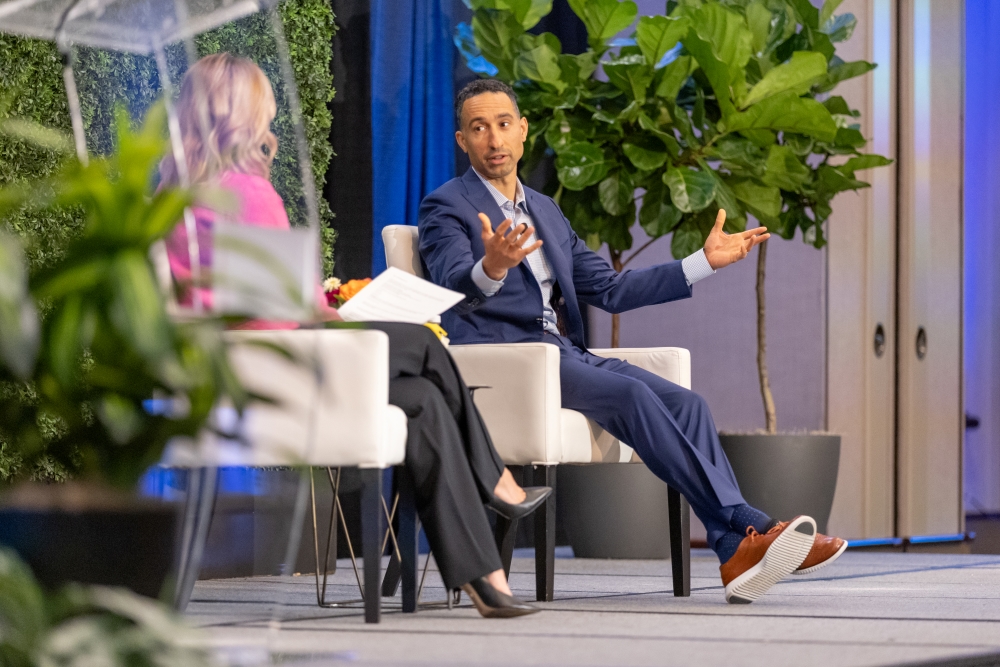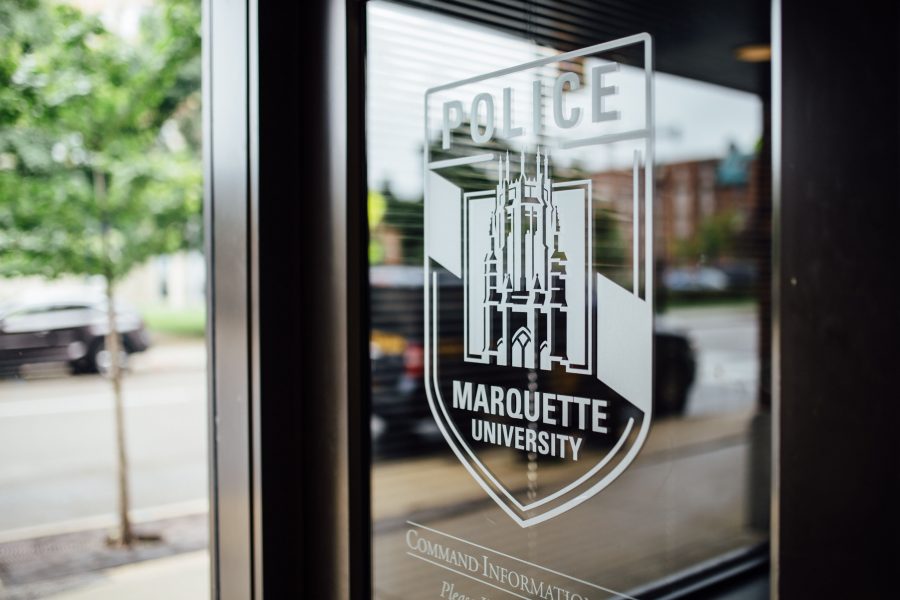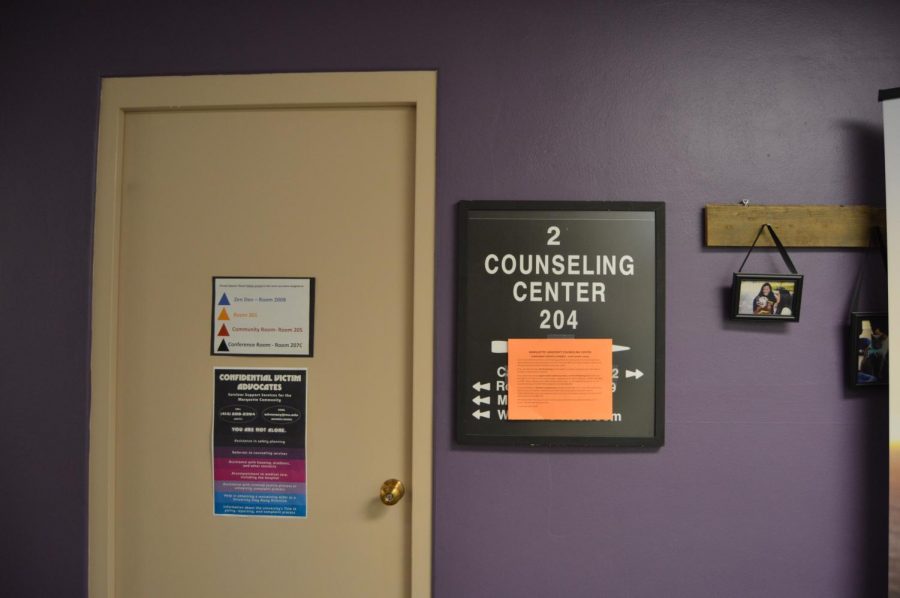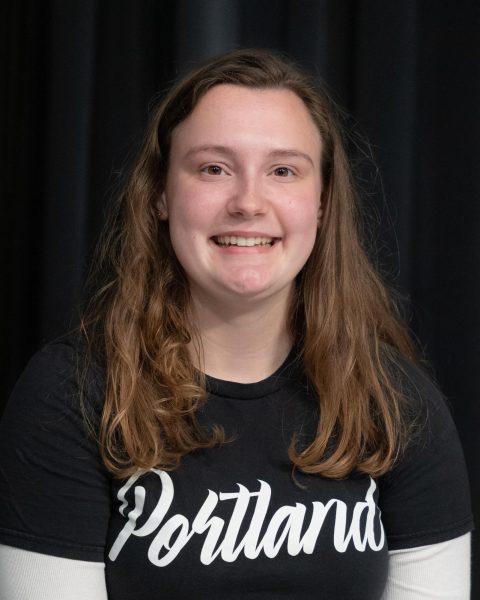Content warning: This article mentions issues surrounding sexual assault and other forms of sexual violence.
Between April 19-23, red lawn flags will cover the green space outside of Lalumiere to bring awareness to behaviors that can lead to sexual and relationship violence.
“We’ve been having people write down relationship red flags on them … things such as ‘controlling, goes through your phone, controls what you wear, manipulative’ … that’s what we’ve been doing,” Jenna Kozal, sophomore in the College of Arts & Sciences and research assistant in the Center for Peacemaking, said.
April is Sexual Assault Awareness Month and some members of the Marquette community are using the month as a way to reflect on the issue.
“SAAM is important because it draws attention to the issues, raises awareness, educates and increases understanding about sexual violence, and perhaps most importantly, helps many survivors to speak up and out about their experiences and it helps to connect survivors together to support each other through community building, healing and empowerment,” Heather Hlvaka, assistant professor of social and cultural sciences, said.
Hlavka said it’s important that the Marquette community recognizes that many members have been subjected to behaviors such as harassment, abuse, assault, relationship violence, stalking, coercion and other forms of sexual misconduct on and off campus.
“We must all be honest with ourselves that we likely know someone who has been sexually assaulted or perhaps we know someone who has harassed, abused or assaulted someone else,” Hlvaka said. “This is a difficult fact to reckon with, but it will also empower us to address the issue and make lasting change in our culture because that is on each of us.”
In the United States, 1 in 6 women have been the victim of a rape or attempted rape and there are over 450,000 victims of sexual assault each year.
Individuals between ages 18-34 are at the highest risk of sexual violence, making up 54% of sexual assault victims in the United States. Male college students between 18-24, are 5 times more likely to be sexually assaulted than non-students in the same age group.
It’s estimated that more than 66% of sexual assault cases go unreported.
“Many do not report their experiences to anyone – perhaps not even their friends or partners – and certainly not authorities, due to fear of blame, retribution or the stigma that might be associated with victimization,” Hlavaka said.
Kozal hopes that some of the events the Center for Peacemaking and community partners are hosting will help create a community for people impacted by instances of sexual violence.
“I think community is really important because it shows that you’re not alone as a victim or a survivor and these events are … a good way to raise awareness and show support, provide resources and meet others that are focused on similar goals,” Kozal said.
In addition to the red flag display, there will also be other events including a denim decorating event for denim day, a Soup with Substance event and a survivor speak out. Kozal said that it’s great for students and community members who are not victims to still attend these events since there can be a lack of support for survivors.
“…If you’re passionate about the issue or know somebody who is a victim, be there and show your presence because it really does go a long way just to show that people do care about you and people are here to support you,” Kozal said.
There are other events going on in the Milwaukee community outside of Marquette. Milwaukee VA medical center planted 1,262 flags on the medical center grounds to honor military sexual assault victims that have been served by the hospital.
“This display is a way to honor the survivors and raise awareness that help is available through VA,” Todd Witt, military sexual trauma coordinator for the Milwaukee VA, said in a press release.
Hlvaka is also a Marquette campus advocate. In that role, Hlavaka assists victims of sexual and relationship violence finding support, medical services, safety plans and taking legal action if applicable.
“It is essential to know that these services are confidential, and support is offered regardless of whether the victim chooses to file a formal report or not. Advocates strive to keep survivors in control of all decisions that are made about their healing processes or actions they take going forward,” Hlavaka said.
Advocates are available 24/7 through a campus hotline. They can also help with academics, housing, university stay-away directives and other services a victim/survivor may need.
“We are all affected by sexual and gender violence and our connections to our community and concern for humanity calls us to address the root causes and seek ways to heal together and support each other in ways that are inclusive, educated, and survivor-led and informed,” Hlavaka said.
If you or someone you know is a victim of sexual violence, here are resources:
Marquette University advocacy services (414) 288-5244
Aurora Healthcare Healing and advocacy (414) 219-5555
This story was written by Megan Woolard. She can be reached at megan.woolard@marquette.edu or on Twitter @MeganWoolard4


